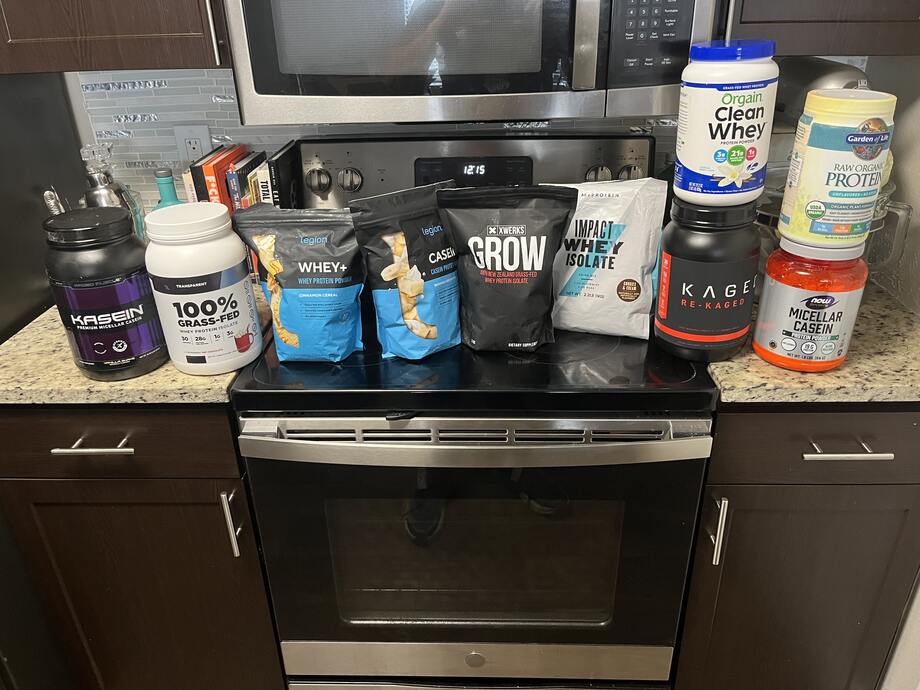
Boost Your Wellness: Essential Insights on Protein Supplements for Menopause
As we approach the end of 2024, more women are seeking ways to navigate the challenges of menopause with grace and vitality. One key aspect of maintaining health during this transitional phase is ensuring adequate protein intake. This comprehensive guide delves into the world of protein supplements for menopausal women, offering insights on their benefits, types, and how to incorporate them effectively into your wellness routine.

The Menopause-Protein Connection: Why It Matters
Menopause brings about significant changes in a woman's body, many of which can be mitigated with proper nutrition. The decline in estrogen levels during this period leads to various physiological changes, including decreased muscle mass and strength, increased risk of osteoporosis, changes in body composition, and metabolic slowdown.
Dr. Sarah Thompson, a leading endocrinologist specializing in women's health, explains, "During menopause, the body's ability to synthesize protein efficiently decreases. This makes adequate protein intake crucial for maintaining muscle mass, bone density, and overall health."
Health Benefits of Protein During Menopause
Protein supplements can offer several specific benefits for women experiencing menopause:
-
Muscle Mass and Strength Preservation: Adequate protein intake helps prevent sarcopenia (loss of skeletal muscle) and maintains muscle tone and strength. A study published in the Journal of Women's Health found that postmenopausal women who increased their protein intake by 25% showed significant improvements in muscle mass and strength over a 6-month period.
-
Bone Health Support: Protein, when combined with other nutrients like calcium and vitamins D and K2, can help maintain bone density and reduce the risk of osteoporosis. Research from the American Journal of Clinical Nutrition indicates that higher protein intake is associated with a lower risk of hip fractures in postmenopausal women.
-
Weight Management Assistance: As metabolism slows down around age 40, a diet rich in protein can help keep the metabolic rate higher. A 2023 study in the International Journal of Obesity found that menopausal women who consumed a high-protein diet (1.2g per kg of body weight) lost more fat mass and retained more muscle mass compared to those on a standard protein diet.
-
Cardiovascular Health Improvement: Higher protein intake has been linked to improvements in cardiovascular health in postmenopausal women. The Women's Health Initiative Observational Study found that women who consumed more protein had a 30% lower risk of heart disease compared to those with lower protein intakes.
-
Appetite Control: Protein can help reduce the urge to snack and promote feelings of fullness. This is particularly beneficial for managing weight during menopause when hormonal changes can affect appetite regulation.
Choosing the Right Protein Supplement
When it comes to selecting a protein supplement, menopausal women have several options to consider:

-
Whey Protein: Highly recommended due to its complete amino acid profile and high bioavailability. It's particularly beneficial post-workout because it's fast-digesting and rich in branched-chain amino acids (BCAAs).
-
Soy Protein: A viable option, especially for those with dairy intolerance. It contains phytoestrogens, which may help reduce menopause symptoms. However, the effectiveness of soy in managing menopausal symptoms can vary among individuals.
-
Plant-Based Options: For those preferring plant-based supplements, options such as pea protein, rice protein, and hemp protein are available. While these may have lower protein digestibility scores compared to whey and soy, they can still be effective when consumed in adequate amounts.
-
Casein Protein: Another milk-derived protein that is slower-digesting and can be beneficial before bed to provide a sustained release of amino acids.
Dr. Emily Chen, a nutritionist specializing in women's health, advises, "When choosing a protein supplement, look for options with minimal additives and sugar. Consider your dietary preferences and any allergies or intolerances you may have."
Recommended Protein Intake for Menopausal Women
The protein needs for menopausal women are slightly higher than the standard Recommended Dietary Allowance (RDA). Here are some guidelines:
- General recommendation: 60-70 grams of protein per day
- For women over 40-50: 1-1.2 grams per kilogram of body weight per day
- For active or athletic postmenopausal women: 1.8 to 2.0 grams of protein per kilogram of body weight per day
It's important to spread protein consumption evenly throughout the day, aiming for 15-30 grams per meal for optimal benefits.

Combating Sarcopenia: The Role of Protein Supplements
Sarcopenia, the age-associated loss of skeletal muscle mass and function, is a concern for menopausal women. Protein supplements play a crucial role in preventing and treating this condition:
- Whey Protein: Supplementing with 15-20 grams of whey protein can increase the muscle-strengthening effects of resistance exercise.
:max_bytes(150000):strip_icc()/VWH-GettyImages-1360059155-10d324a9308b4572b3408a654da91d76.jpg)
-
Leucine-Rich Protein: Supplements rich in leucine can improve markers of sarcopenia, regardless of physical activity. Leucine is an essential amino acid that plays a key role in stimulating muscle protein synthesis.
-
Synergistic Effects with Exercise: Combining protein supplements with resistance training and aerobic exercise has synergistic effects, helping to preserve muscle mass and function more effectively than either intervention alone.
Potential Side Effects and Risks
While protein supplements can be beneficial, it's important to be aware of potential side effects:
-
Thermogenic Effects: High-protein diets can increase metabolism and body temperature, potentially exacerbating hot flushes and night sweats.
-
Organ Stress: High protein intake can put additional stress on the thyroid, liver, kidneys, and gut, leading to increased inflammation.
-
Hormonal Impact: Soy-based proteins can act as phytoestrogens, which may not be favorable for all women, especially those with estrogen-driven conditions.
-
Gut Health: Protein powders can affect gut health by altering the microbiome diversity, potentially interfering with hormone detoxification.
-
Gluten Sensitivity: For women with autoimmune thyroid diseases, protein powders containing gluten can trigger immune responses and worsen symptoms.
Dietary Protein vs. Supplements: Finding the Right Balance
While protein supplements can be helpful, dietary sources of protein generally offer more comprehensive benefits.
Dr. Thompson emphasizes, "Whole food protein sources provide not only protein but also other essential nutrients like vitamin D, calcium, and omega-3 fats. They should form the foundation of your protein intake, with supplements used to fill any gaps."
The Holistic Approach: Protein and Other Essential Nutrients
For optimal health during menopause, protein intake should be complemented by other essential nutrients:
- Calcium and Vitamin D: These nutrients work synergistically with protein to promote lean muscle mass and bone strength.

-
Vitamin K2: Supports bone remodeling, helping to maintain sturdy bones and reduce the risk of osteoporosis.
-
Physical Activity: Regular exercise, particularly resistance training, works in tandem with protein intake to maintain muscle mass and bone strength.
-
Balanced Diet: A well-rounded diet that includes a variety of protein sources, along with controlled caloric intake, is crucial for overall health during menopause.
Conclusion: Empowering Your Menopausal Journey with Protein
As we've explored, protein supplements can play a significant role in supporting health and wellness during menopause. By understanding your specific needs, choosing the right type of protein supplement, and combining it with a balanced diet and regular exercise, you can navigate this transitional phase with strength and vitality.

Remember, while supplements can be beneficial, they should complement, not replace, a nutrient-rich diet. Always consult with your healthcare provider or a registered dietitian before starting any new supplement regimen to ensure it aligns with your individual health goals and needs.
As we look ahead to 2025, embracing the power of protein can be a key step in your journey towards a healthier, more vibrant menopausal experience. With the right approach, you can harness the benefits of protein to support your body through this significant life transition.
Why is protein intake important during menopause?
Protein intake is crucial during menopause because it helps maintain muscle mass, supports bone health, aids in weight management, and improves cardiovascular health, all of which can be affected by hormonal changes.
What are the benefits of protein supplements for menopausal women?
Protein supplements can help preserve muscle mass, support bone density, assist with weight management, improve cardiovascular health, and promote appetite control.
What types of protein supplements are recommended for menopausal women?
Recommended protein supplements include whey protein, soy protein, plant-based options (like pea, rice, and hemp protein), and casein protein, each offering unique benefits.
How much protein should menopausal women consume daily?
Menopausal women should aim for 60-70 grams of protein per day, or 1-1.2 grams per kilogram of body weight, with higher needs for active individuals.
Can protein supplements help with sarcopenia?
Yes, protein supplements, especially those rich in leucine and whey protein, can help combat sarcopenia by preserving muscle mass and strength.
Are there any potential side effects of protein supplements?
Possible side effects include increased metabolism and body temperature, stress on organs, hormonal impacts from soy protein, and potential gut health issues.
Should I rely on protein supplements or dietary protein sources?
While protein supplements can be helpful, it's best to prioritize whole food protein sources for their added nutrients and benefits.
How can I incorporate protein supplements into my diet?
You can add protein supplements to smoothies, oatmeal, or baked goods, or enjoy them as a post-workout recovery drink to meet your protein needs.
What other nutrients should I consider alongside protein during menopause?
In addition to protein, consider calcium, vitamin D, vitamin K2, and regular physical activity to support overall health during menopause.
Is it necessary to consult a healthcare provider before starting protein supplements?
Yes, it's essential to consult with a healthcare provider or registered dietitian to ensure that protein supplements fit your individual health goals and needs.
